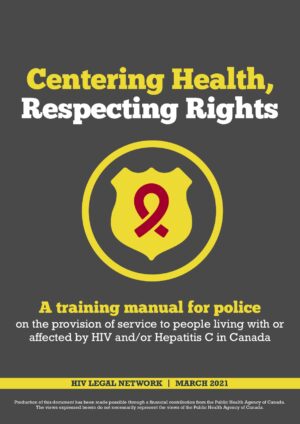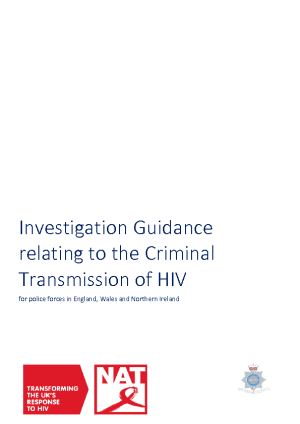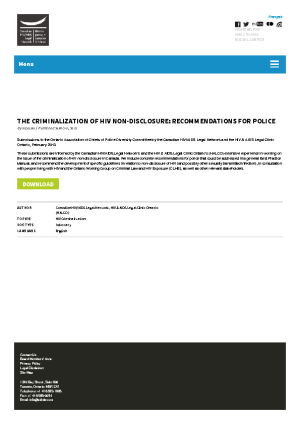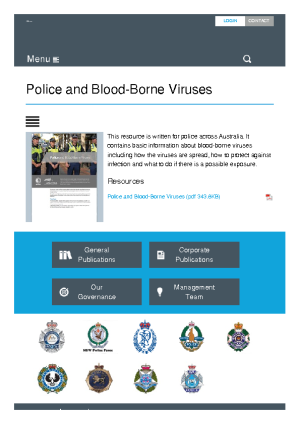This training manual draws on current scientific evidence and best practices related to police education and HIV and HCV health and safety training. It is intended for use by police departments to assist them in meeting their professional obligations to provide safer service to people living with and affected by HIV and/or HCV.
Police Guidelines
The following section includes official and external guidance for police when dealing with HIV-related issues.
Investigation Guidance relating to the Criminal Transmission of HIV for police forces in England, Wales and Northern Ireland
Sets out how prosecutors should deal with cases where there is an allegation that the suspect/defendant has passed an infection to the complainant during the course of consensual sexual activity. States the criminality of this offending lies in the mens rea, so relevant offences will be difficult to prove to the requisite high standard, to satisfy the evidential stage of the Code test and in the court itself. Also warns of other sensitivities: the relationship between the criminal law and consensual sexual behaviour is delicate.
The criminalization of HIV non-disclosure: Recommendations for police
Outlines the law and includes concrete recommendations for police that could be addressed in a general Best Practice Manual. Recommends the development of specific guidelines in relation to non-disclosure of HIV (and possibly other sexually transmitted infection) in consultation community stakeholders.
HIV: A Guide for Police Forces. How to address HIV in police occupational health policies and blood-borne training, UK.
Includes information about how HIV is transmitted, what to do if exposed to HIV, how to respond to someone with HIV, and information about criminal prosecution for HIV transmission. Also has an easy-to-use check-list to ensure blood borne virus training and occupational health policies are fit for purpose and up-to-date. Endorsed by the British HIV Association.
Police and Blood-Borne Viruses
Contains information about blood-borne viruses including how they are spread, how to protect against infection and what to do if there is a possible exposure. Written to provide information and guidance, it does not supersede policies and procedures of policing agencies.




